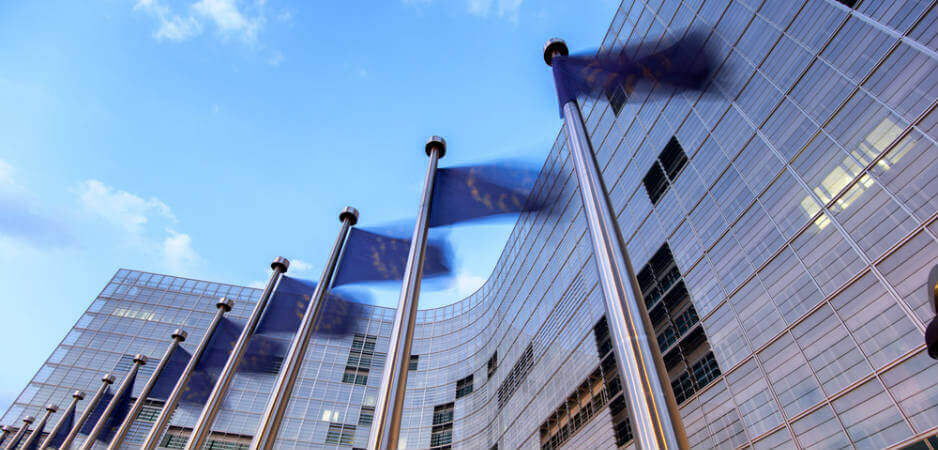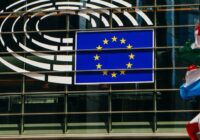The upcoming EU presidency is Bulgaria’s chance to remold its image as a reliable and stable actor in the Balkans and beyond.
On January 1, 2018, Bulgaria will take over the Presidency of the Council of the European Union for the first time in its history. The country is stepping up on the European stage at a time when there is a renewed sense of optimism for the future among the 27 member-states that will remain post-Brexit. However, the challenges that the Bulgarian presidency will be facing should not be underestimated.
As the EU’s poorest country with a reputation for high levels of corruption, an ineffective judicial system and low levels of administrative capacity, Bulgaria often receives unfavorable treatment within European institutions and among member states. The country has, for example, technically been ready to become a member of the Schengen zone since 2011. Concerns, expressed predominantly by the Netherlands and Germany, are keeping this door closed. Year after year Bulgaria also receives stern warnings from the European Commission that it must fight corruption and fix its judiciary. The upcoming presidency will, therefore, be a serious test for the country and its determination to change its image from a poor member on the EU’s eastern flank to a reliable and stable actor in the Balkans and beyond.
Reality Check
While the Bulgarian government is undoubtedly excited about its upcoming presidency, a reality check is necessary. Recently, the entire cabinet traveled to Brussels to meet with the European Commission. The tweets, pictures, Facebook posts and livestreams were endless. Indeed, the government has been promising from the outset that the results of the presidency will be groundbreaking for Europe and Bulgaria. No doubt it potentially offers political benefits on the home front. Not only are Bulgarians tired of the country’s peripheral image, but prolonged time in the European spotlight might also overshadow some domestic challenges.
Having unrealistic expectations, however, may lead to bitter disappointment in the long run. If the Bulgarian tenure does not yield some concrete council decisions, or if it falters in technical and organizational matters, it runs the risk of prolonging perceptions as a less than reliable partner. Worse still, Bulgaria’s performance might also influence the trust level of the EU toward the rest of the Balkan region.
The build-up to the presidency has also been confusing for ordinary Bulgarians. Bold statements of intent have been clouded by power struggles and financial mismanagement of the site to be used for high-level meetings (the so-called National Palace of Culture Affair). Conversely, many Bulgarians remain supportive of the European project. According to the latest Eurobarometer survey, only 14% of citizens see the EU in a negative light, with 54% trusting the wider organization. This stands in stark contrast to trust in the Bulgarian government, which is viewed favorably by only 28% of the population.
Revolutionary Changes
Some Bulgarians retain the hope that the presidency will bring revolutionary changes to the country. This misunderstanding about the function of this six-month term of office is perpetuated by a lack of public knowledge and the government’s overexcitement. As one Bulgarian journalist put it, the presidency is in effect like the speaker of a parliament. The Bulgarian delegation will lead meetings, have some say on the agenda and, if they are skillful, be able to advance favorable texts in the proposals.
There are three key themes that will underpin Bulgaria’s presidency: consensus, competitiveness and cohesion. From a consensus perspective, stewardship of the EU is all about encouraging member states to mutually agree on vital policies and moving the agenda along. The themes of competitiveness and cohesion, however, reveal the substantive goals that the Bulgarian presidency hopes to achieve, aligned with its own national interests. These are clear European perspectives for the Western Balkans: a continuation of Structural and Cohesion Funds for Central and Eastern Europe, without dramatic shifts and decreases; Bulgaria’s and Romania’s accession to the Schengen zone; and the addition of new members to the eurozone “waiting room,” including Bulgaria and Croatia.
Why are these topics so important to Bulgaria?
First, Sofia wants to transform its reputation from being a follower to a leader. The country has positioned itself as the unifier of the Balkans. While French President Emmanuel Macron was touring the Central and Eastern European countries this summer, Bulgarian Prime Minister Boyko Borissov was doing his tour de Balkans. There are sensitive issues among the Balkan countries, but Bulgaria has been trying to make progress on essential non-conflict issues, particularly when it comes to infrastructure, communication, transportation and energy. In this respect, Bulgaria’s ability to broker the removal of roaming charges on calls between the EU and the Western Balkans will undoubtedly be regarded as a positive outcome of its time in office.
And let’s not forget that EU Commissioner for Digital Economy and Society Mariya Gabriel is Bulgarian and a member of the country’s ruling party. This should help the commission to better align its work with the Bulgarian presidency. But this does not mean that plain sailing will occur elsewhere, particularly when it comes to clarifying future European perspectives on the Western Balkans. Tobias Böhmelt and Tina Freyburg revealed in a recent study that some states from the region will not be able to join the EU until 2050. There might be a renewed spirit of Europeanism in the air, but this should not be mistaken as an automatic invitation for EU enlargement.
Flow of Funds
Bulgaria also wants to ensure that the flow of European funds to the country will not decrease after Brexit and further eurozone reforms. The decision on the priorities for the new Multiannual Financial Framework — the instrument outlining how European funds will be redistributed after 2020 — will be taken during the Bulgarian tenure. For the first time it will be without the UK and its financial contributions. Bulgaria has a lot at stake in these negotiations. The calls for a reform of the eurozone and the creation of a separate budget directly influences the redistribution channels of European funds, in terms of amounts and the direction of the flow. Those that are not members of the eurozone are in a vulnerable position. Bulgaria can use its influence on the agenda to maneuver the direction of the discussion. However, any expectations that only Bulgarian demands for European funds will be adopted are misleading. The largest contributors to the budget, like Germany and France, will also be the main influencers.
In addition, Bulgaria wants to become a member of the Schengen zone. In his State of the Union address, European Commission President Jean-Claude Juncker openly stated that Bulgaria and Romania should accede as soon as possible. For its part, the Bulgarian government has consistently stressed the contribution it has made to protecting EU’s external borders, particularly during the height of the migration crisis (2015-16). Bulgaria’s cause is also strengthened by the Leaders’ Agenda set by President of the European Council Donald Tusk, which has security and migration to be discussed early next year. This will allow the Bulgarian presidency to “lobby” for entry into Schengen.
However, it is highly unlikely that a decision on this issue will be taken in 2018 or possibly when Romania assumes the EU presidency the following year. A more likely scenario is that more powerful member states will use both presidencies to test both countries’ ability to undertake domestic reforms while fulfilling their European roles and responsibilities. If Bulgaria presides smoothly over the Council of the EU, it will not do any harm to its ambition to enter Schengen.
Ultimately, Bulgaria wants to become part of the eurozone. After a dynamic 2017 for the EU, complete with inspiring speeches by European leaders, next year will be a time for negotiation and decision-making. There is no doubt that the eurozone must be reformed to move its members into a higher gear of integration. Technically, Bulgaria now qualifies for membership of the European Exchange Rate Mechanism — “the waiting room” for the eurozone. However, Sofia should also be prepared for possible setbacks. A recent report by the European Political Strategy Centre points out that there are other criteria, besides the official convergence standards, that might present a challenge for Bulgaria. These include higher income levels, a higher standard of living and the ability to handle instability.
While enthusiasm in Bulgaria for the forthcoming presidency is to be welcomed, a reality check is in order. The Bulgarian government is undoubtedly determined to leave its mark, particularly when it comes to improving perceptions of the Western Balkans. Its ambitions to join Schengen and the eurozone also have the vocal backing of President Juncker. However, it is a view that is unlikely to be unanimously supported by fellow member states. Bulgaria’s reputation as a poor Eastern European country with many internal issues will be difficult to change. Instead of setting very ambitious goals, the Bulgarian presidency should instead concentrate on providing professional administrative and expert support to the council’s agenda. If this exercise is successful Bulgaria will pass an important test in its bid to become a more important European player.
*[GLOBSEC is a partner institution of Fair Observer.]
The views expressed in this article are the author’s own and do not necessarily reflect Fair Observer’s editorial policy.
Photo Credit: Zurijeta / Shutterstock.com
Support Fair Observer
We rely on your support for our independence, diversity and quality.
For more than 10 years, Fair Observer has been free, fair and independent. No billionaire owns us, no advertisers control us. We are a reader-supported nonprofit. Unlike many other publications, we keep our content free for readers regardless of where they live or whether they can afford to pay. We have no paywalls and no ads.
In the post-truth era of fake news, echo chambers and filter bubbles, we publish a plurality of perspectives from around the world. Anyone can publish with us, but everyone goes through a rigorous editorial process. So, you get fact-checked, well-reasoned content instead of noise.
We publish 2,500+ voices from 90+ countries. We also conduct education and training programs
on subjects ranging from digital media and journalism to writing and critical thinking. This
doesn’t come cheap. Servers, editors, trainers and web developers cost
money.
Please consider supporting us on a regular basis as a recurring donor or a
sustaining member.
Will you support FO’s journalism?
We rely on your support for our independence, diversity and quality.







